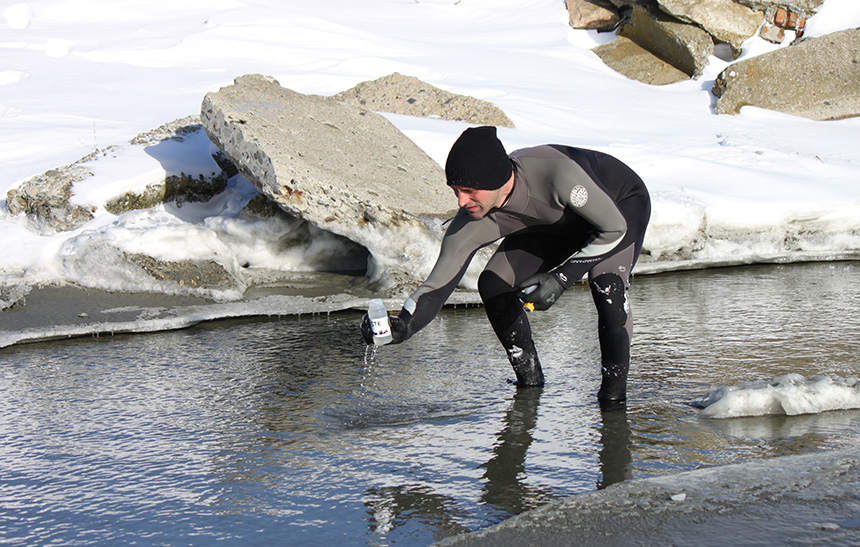Momentum Builds for Campus Divestment
March 25, 2013
PROVIDENCE — Two puzzle pieces recently fell into place for Brown Divest Coal (BDC), a student-led group fighting against Brown University’s investments in the 15 largest U.S. coal companies.
First, President Christina Paxson officially acknowledged that the university holds investments in some of the coal companies in question. Second, a member of the Advisory Committee on Corporate Responsibility in Investment Policies (ACCRIP), the group charged with reviewing the divestment request, said the committee will likely recommend to Paxson that the university withdraw its funds from those companies.
If ACCRIP recommends divestment, then Paxson must decide whether to extend the recommendation to The Corporation of Brown University. The Corporation makes the final decision on issues of divestment.
According to Kristy Choi, a BDC student leader, it would be unprecedented for Paxson and The Corporation to overrule an ACCRIP divestment recommendation; each time the ACCRIP has recommended divestment in the past — HEI Hotels & Resorts in 2010, Sudan and Darfur in 2006, and tobacco in 2003 — The Corporation has divested.
“We know within the next couple of weeks ACCRIP will send a letter to Paxson in favor of divestment,” Choi said. “The next Corporation meeting is in May, so we are hoping to win then.”
In the meantime, BDC members are continuing to build support for divestment. On March 14 BDC hosted a teach-in during which interested students had their questions about divestment answered and learned how to get involved with the campaign.
Robert Massie, author of “Loosing the Bonds: The United States and South Africa in the Apartheid Years,” compared the fossil-fuel divestment movement to the Civil Rights Movement, spoke about his experiences at Princeton during the South Africa divestment movement and pushed back against the notion that divestment from coal is too procedurally difficult for Brown University to achieve.
“Divestment is a concrete action which (Brown) can take and which (students) can support in a sea of shameful and suicidal apathy,” Massie told the 40 students at the recent teach-in.
Divestment is a routine part of managing funds despite protests by fund managers that the process is too complicated, he said. “When fund managers say they can’t divest from fossil fuels, they mean they don’t want to. If they can’t figure this out over five years, they are incompetent.”
Five years is the amount of time Brown University would have to divest if it agrees to BDC’s terms.
A letter to The Corporation from Tom Steyer, a former hedge fund manager, was read during the teach-in. The letter says that divestment from coal is feasible and “a good investment strategy.”
“There’s a tendency to say ‘we can’t do this’ because funds are commingled, because there are many managers,” Steyer wrote. “But the request put forward is very do-able. It asks you to stop investing new money in this area, and then spend a number of years winding down positions. I can tell you, from my experience building one of the country’s larger hedge funds, that this is entirely possible.”
The teach-in also included a video from Bill McKibben, detailed information about the 15 coal companies BDC is targeting for divestment and a presentation by BDC member Rachel Bishop about being arrested for civil disobedience at a March 11 tar sands protest at TransCanada’s Massachusetts office.
“Our leaders are not doing what they need to do and we don’t have time to grow up and make a difference (as political leaders); 2017 is only four years away,” said Bishop, referring to the International Energy Agency’s 2011 report that claims that without significant action by 2017 the energy infrastructure in place will make controlling climate change nearly impossible.
Divest RISD
On the other side of Benefit Street, a parallel discussion about divestment is happening at the Rhode Island School of Design (RISD).
In November, Emma Beede learned about fossil-fuel divestment when she read Bill McKibben’s Rolling Stone article “Global Warming’s Terrifying New Math.” Beede, a RISD senior, began working with BDC, and after witnessing the impact the group was having at Brown, she decided to start Divest RISD.
Divest RISD demands that the school divest from the 200 companies that hold the majority of the world’s proven coal, oil and gas reserves. This ambitious goal is in line with the nationwide divestment movement loosely organized by McKibben’s organization 350.org.
Divest RISD is made up of four core members and a handful of others who pitch in as needed, according to Beede. Despite its small size, Divest RISD is having a big impact on campus. Earlier this month, RISD’s faculty voted unanimously in favor of divestment, after Beede delivered a presentation.
According to Anne Tate, president of the Faculty Steering Committee, Beede’s presentation put divestment on the faculty’s radar. “Some people probably knew about 350.org’s campaign, but it was not being considered by the faculty,” Tate said.
Divest RISD also has met with President John Maeda, vice president of finance Bill Decatur, senior vice president of students Jean Eddy and chairman of the board of trustees’ Investment Committee Peter Stein.
Based on the way RISD’s finances are managed, Decatur and the Investment Committee will play a key role in deciding the fate of the divestment movement on campus. During Divest RISD’s initial meeting with Decatur he was “very open to the idea and agreed this was a pressing issue,” according to Beede.
She said Decatur agreed to figure out what steps would need to be taken for RISD to divest. Then, in a follow-up meeting, Beede said Decatur and Stein were both “very resistant to divesting after looking into the difficult steps that would be involved.” Beede said Decatur and Stein also were concerned about jeopardizing profits.
Tate believes Decatur and Stein’s procedural concerns are probably the real issue. She also said Divest RISD’s requests are “reasonable in that they don’t require immediate divestment. … That makes this movement possible.”
ecoRI News reached out to Decatur for an interview, but received the following statement instead: “We are just beginning to explore this complex issue with interested students and discuss with them how investment decisions are made at a college. We appreciate their passion.”
To put more pressure on the school, Beede is turning her group’s focus to building student support. Currently, 200 students have signed the campaign’s petition in favor of divestment, but Beede hopes to grow that number substantially by canvassing at cafeterias and studios.
Divest RISD also hopes to tap into the faculty’s support by presenting in classrooms and partnering with sustainability focused classes. Beede envisions organizing a panel discussion that includes knowledgeable faculty who can respond to questions RISD students may have about divestment.
Once the student body is adequately informed, Divest RISD will request a vote on the issue at a Student Alliance meeting, according to Beede. A favorable vote, Beede said, would put pressure on the administration and board of trustees. She hopes to get a vote before April 30.
“Divesting could put RISD on the map as an innovator of the future,” Beede said. “RISD could invest that money in renewable energy or a more sustainable campus. At a minimum, we are just asking RISD not to invest in companies that are destroying the planet.”
Categories
Join the Discussion
View CommentsRelated Stories
Your support keeps our reporters on the environmental beat.
Reader support is at the core of our nonprofit news model. Together, we can keep the environment in the headlines.
We use cookies to improve your experience and deliver personalized content. View Cookie Settings



